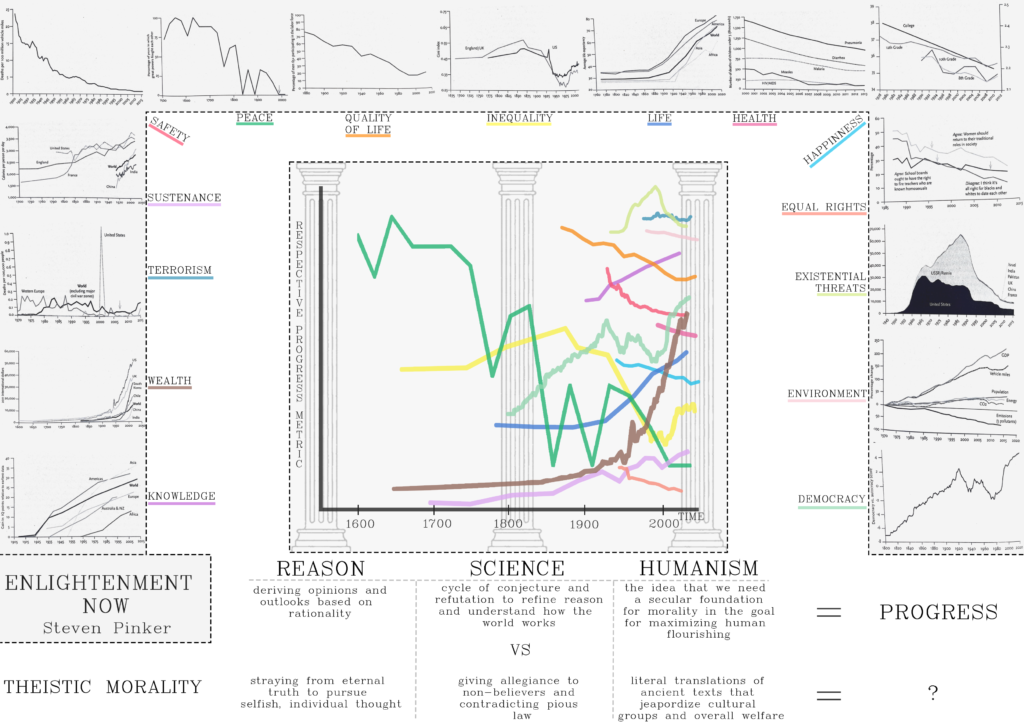Book: Enlightenment Now by Steven Pinker
Steven Pinker is a renowned academic with a global presence in his teachings and publications. Currently, Pinker is a psychology professor at Harvard University. His book Enlightenment Now is a commentary on the human condition in modern times amidst negative tones in media and the general public.
Starting in the 17th century, the enlightenment era was defined by advancements in human thought processes to draw conclusions. Pinker leans on the core enlightenment values of Science, Reason, and Humanism to explain human progress in the last few centuries.
In 16 variables, Pinker tries to cover the main measures of human progress. The book relies heavily on research, data, and statistics to then base its conclusions. This methodology shown to the reader aligns with the overarching theme to detach from unknown biases and look towards the facts to base conclusions.
To summarize the book in diagram form, the 16 major themes were combined into one graph with common x axis being time. Although the y-axis for each curve varies, it is interesting to see that the curves have general trends up or down with time. Such consistency in data displays over many years can then allow for us as individuals to synthesize and draw conclusions. Additionally, by seeing such a complex web of data, it is evident that analyzing human progress is not a simple task.
In the conclusion of the text, Pinker juxtaposes the enlightenment values of reason, science, and humanism with other schools of thought, such as theistic morality. The author critiques some religious followings to be outdated, leading to more harm than good in the world. Although controversial, I think the author opens up a conversation and place of reflection for individuals. Although in general the author strays from biases, the book seems angled towards a north-american audience – with many metrics coming from the US population.


